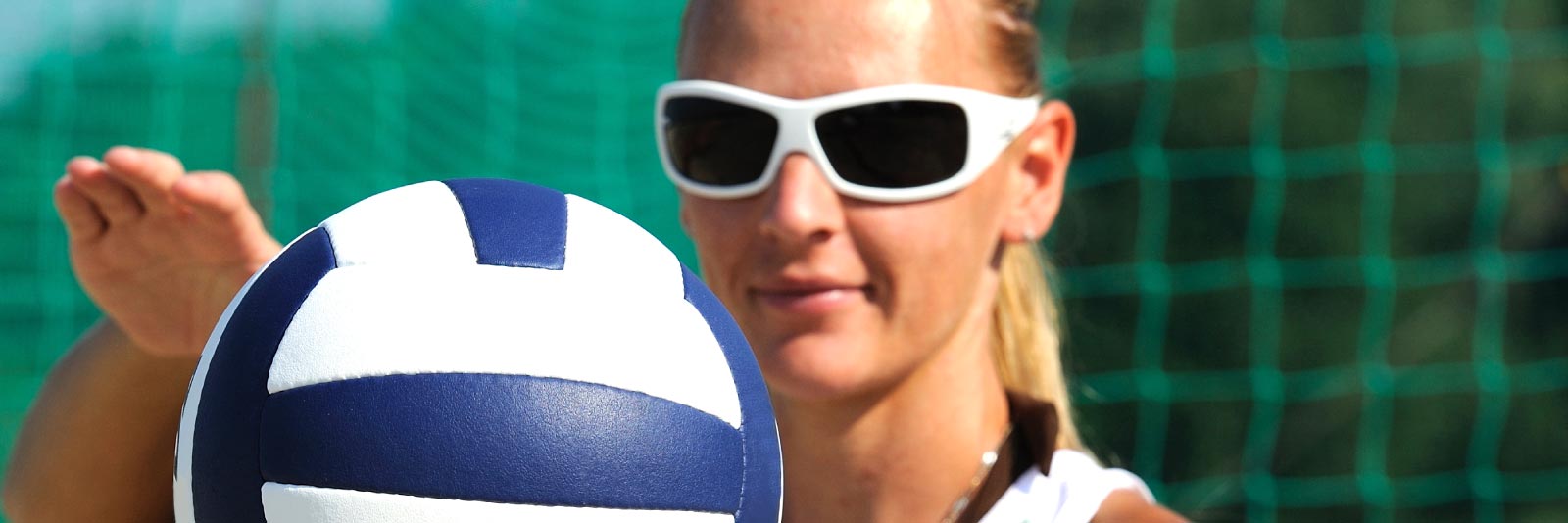Getting a beach volleyball scholarship is a great way to continue playing the sport you love and finance your college education. These scholarships are awarded to elite athletes who have demonstrated their potential to compete at the highest level. To secure your spot on a team and earn an athletic scholarship, you’ll need to navigate the recruiting process.
In the page below, we’ll help you understand everything you need to know about beach volleyball scholarships, from the recruiting process to tips for standing out. Let’s get you on the path to success and make your athletic and academic dreams a reality!
New NCAA beach volleyball scholarship limits
Starting in the 2025-2026 academic year, the NCAA changed its scholarship and roster limits, enabling all sports to distribute scholarships more flexibly among athletes. This change is expected to have a significant impact on college recruiting. More details and the latest updates here.
These changes would impact beach volleyball players in the following ways:
- D1 beach volleyball programs will be allowed to offer 19 scholarships, up from the current limit of 6.
- D1 beach volleyball will have a maximum roster limit of 19.
- D1 beach volleyball is already an equivalency sport and will continue to offer both partial and full scholarships to recruits.
Note: These are the maximum scholarship and roster limits set by the NCAA, but schools aren’t required to meet these maximums.
Number of beach volleyball scholarships by division level
Take a look at the table below to see the NCAA scholarship stats for beach volleyball.
| Division Level | Number of Schools | Current Average Roster Size | Current Scholarship Limit | 2025-26 Scholarship Limit* | 2025-26 Roster Limit | Scholarship Type |
| D1 | 66 | 19.2 | 6 | 19 | 19 | Equivalency |
| D2 | 22 | 18.3 | 5 | 5 | N/A | Equivalency |
| D3 | 8 | 15.9 | N/A | N/A | N/A | N/A |
| NAIA | 32 | 14 | Varies | N/A | N/A | Equivalency |
| CCCAA* | 47 | 13 | Varies | N/A | N/A | Equivalency |
* California Community College Athletic Association (CCCAA) is a sports association for community colleges in the state of California.
How do beach volleyball scholarships work?
College coaches can split scholarships among multiple players. The new NCAA rule allows D1 beach volleyball schools to offer up to 19 full-ride scholarships, a significant increase from the previous limit of 6. However, not all programs are fully funded, so some schools may have fewer scholarships available than the NCAA allows.
Average beach volleyball scholarship amount
Many families ask how much the average scholarship is for college beach volleyball. Unfortunately, that’s a tough statistic to pinpoint. The cost of tuition at each college and university is going to range from approximately $20,000 a year to $60,000. Trying to find an average scholarship amount doesn’t account for those differences in tuition. Furthermore, not all athletes receive scholarships all four years of their college beach volleyball career, which is tough to factor in when considering an average dollar amount.
Instead of trying to determine what the average scholarship amount is, we recommend families first figure out how much they are willing to pay for four years of college. Then, as you’re going through the recruiting process, you can compare offers based on your family’s expected contribution, or the amount you will pay out of pocket after you factor in all scholarship dollars.
What are my chances of playing beach volleyball in college and getting a scholarship?
The recent changed NCAA rule increasing the scholarship limit for D1 beach volleyball from 6 to 19 scholarships could open up more opportunities for players like you. However, each school will manage these scholarships differently based on their funding and specific needs.
To improve your chances of getting a beach volleyball scholarship, stay in touch with coaches, regularly showcase your skills and learn how each school handles scholarships and walk-on spots. Understanding how each program works will help you make smart decisions and boost your chances of success in the recruiting process.
Insider Tip: If you can’t get the beach volleyball scholarship you’re looking for, try searching for schools one level lower. Top athletes will always receive more scholarship money than those who are in the middle of the pack.
How D3 athletes still get college scholarships
While D3 schools don’t offer athletic scholarships, most D3 athletes do receive other forms of financial aid. If you’re interested in competing at a D3 school, don’t let the lack of athletic scholarships deter you.
Do you have good grades and test scores? You might qualify for an academic scholarship. Have you been involved in extracurriculars and in your community? You might be able to find a merit-based scholarship. And many families do take advantage of need-based financial aid, which is awarded based on factors like household income.
Athletic scholarships aren’t the only way to help pay for your college tuition. There are many other forms of scholarships you can add on in addition to your athletic scholarship if you’re willing to go out and find them.
Insider Tip: Looking for scholarships near you? Explore beach volleyball scholarships by state.
Looking for more expert guidance?
Your NCSA Beach Volleyball Recruiting Coach is here to guide you through the beach volleyball scholarship process. Log in now to schedule a conversation with your coach.
Not a member yet? Start with a free recruiting profile to connect with an NCSA Recruiting Specialist. We’ll help you and your family plan the next steps in your recruiting journey and achieve your scholarship goals.
